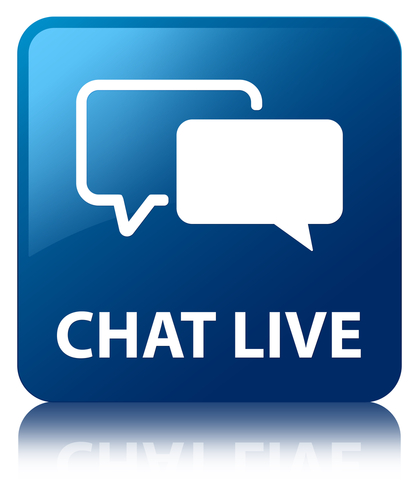COURSE INFORMATION
This comprehensive Continuing Education course is the foundational course of Attention Deficit/Hyperactivity Disorder. This course provides a very comprehensive overview of attention deficit disorder, as related to children, couples and families. Students will study many facets of the disorder, including therapeutic outcomes and medication management. Participants will study and learn the different subtypes of attention deficit as well as the steps toward diagnosing. Students will read vivid stories of the experiences of people with attention deficit and hyperactivity disorders and learn practical tips on the management of attention deficit and hyperactivity within families, couples, and children. Course Code: AD 500. Contact hours of education = 40.
This course is specifically designed for those qualifying professionals who are studying to meet the education requirements for application for Certification as a Certified Attention Deficit Consultant , by the American Institute of Health Care Professionals, Inc.
BOARD APPROVALS:
The American Institute of Health Care Professionals Inc: is an Approved Provider for Continuing Education by the South Carolina Professional Counselors, Marriage & Family Therapists and Psycho-Educational Specialists licensing board, Provider # 4637. Access information
AIHCP is an approved provider of continuing education by the Florida Board of Nursing and the District of Columbia Board of Nursing. CE Provider # 50-11975.
The American Institute of Health Care Professionals (The Provider) is approved by the California Board of Registered Nurses, Provider number # CEP 15595 for 40 Contact Hours.
This course, which is approved by the Florida State Board Of Nursing (CE Provider # 50-11975) also has the following Board of Nursing Approvals, for 40 contact hours of CE
The American Institute of Health Care Professionals Inc: is a Rule Approved Provider of Continuing Education by the Arkansas Board of Nursing. CE Provider # 50-11975.
The American Institute of Health Care Professionals Inc: is a Rule Approved Provider of Continuing Education by the Georgia Board of Nursing. CE Provider # 50-11975.
The American Institute of Health Care Professionals Inc: is a Rule Approved Provider of Continuing Education by the South Carolina Board of Nursing. CE Provider # 50-11975.
The American Institute of Health Care Professionals Inc: is a Rule Approved Provider of Continuing Education by the West Virginia Board of Examiners for Professional Registered Nurses. CE Provider # 50-11975.
The American Institute of Health Care Professionals Inc: is a Rule Approved Provider of Continuing Education by the New Mexico Board of Nursing. CE Provider # 50-11975.
Course Refund & AIHCP Policies: access here
Instructor/Course Author: Helen Nieves LMHC
Link to Resume
TIME FRAME: You are allotted two years from the date of enrollment, to complete all of the required courses in this specialty program. There are no set time-frames, other than the two year allotted time. If you do not complete the course within the two-year time-frame, you will be removed from the course and an “incomplete” will be recorded for you in our records. Also, if you would like to complete the course after this two-year expiration time, you would need to register and pay the course tuition fee again.
TEXTBOOK:
Driven to Distraction (Revised): Recognizing and Coping with Attention Deficit Disorder from Childhood through Adulthood by Edward M. Hallowell, M.D., and John J. Ratey, M.D. Anchor, 2011.
ISBN -13: 978-0-307-74315-2.
Link to Purchase on Amazon.com: click here
GRADING: You must achieve a passing score of at least 70% to complete this course and receive the 40 hours of awarded continuing education credit. There are no letter grades assigned. You will receive notice of your total % score. Those who score below the minimum of 70% will be contacted by the us and options for completing additional course work to achieve a passing score, will be presented.
COURSE OBJECTIVES: UPON SUCCESSFUL COMPLETION OF THIS COURSE, YOU WILL BE ABLE TO:
1). Understand the concept of attention deficit disorder
2). Gain an historical perspective of attention deficit
3). Understand the biological component of attention deficit
4). Identify the diagnostic criteria for attention deficit disorder in children
5). Understand how attention deficit affects the family
6). Demonstrate use of managing attention deficit within families and couples
7). Explore the subtypes of attention deficit
8). Understand the phenomenon of culturally induced attention deficit
9). Apply steps towards diagnosing
10). Discuss symptoms and reactions of having attention deficit .
11.) Identify and discuss emotions experienced in coping with attention deficit.
12.) Apply psychological testing that helps confirm the diagnosis of attention deficit
13.) Understand the needs of children and adults with attention deficit.
14.) Understand general principles of treatment
15). View attention deficit from the perspective of individuals who have the diagnosis.
16). Discuss medication management
17). Review tips for explaining attention deficit to children.
18). Demonstrate use of structuring and organizing the life of children with attention deficit
19). Understand how psychotherapy and coaching can benefit people with attention deficit
20), Identify primary and secondary symptoms of attention deficit
21). Identify the advantages of group therapy for adults with attention deficit
22). Recognize common problems in the treatment of attention deficit
COURSE CONTENT
A brief abstract of content:
1). Defining attention deficit disorder
2). Adult and child attention defect disorder
3). Subtypes of attention deficit disorder
4). Steps towards diagnosing
5). Treatment of attention deficit disorder.
6). Medication management.
7). Biology of attention deficit disorder
8). Common problems in treatment
9). Attention deficit in couples and the family

